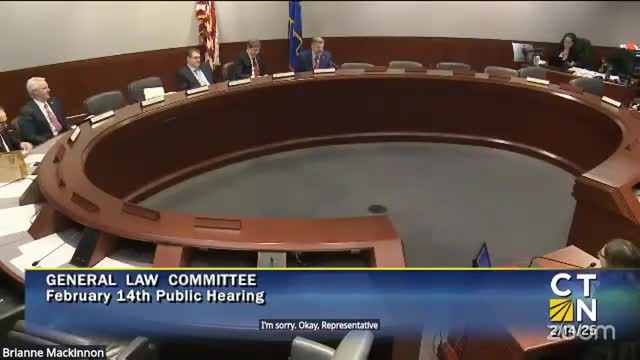Kratom debate puts Connecticut regulators, advocates on opposite sides
Get AI-powered insights, summaries, and transcripts
Subscribe
Summary
Lawmakers heard dueling testimony on whether to add kratom and certain synthetic alkaloids to the state controlled‑substances list. Supporters urged a ban on adulterated, high‑potency formulations marketed to children; opponents, including industry groups and some scientists, urged regulated access with age limits and product testing instead.
Connecticut lawmakers on Feb. 14 heard sharply divided testimony about whether kratom — a botanical commonly sold as a dietary product — should be added to the state’s controlled‑substances list.
The nut graf Supporters of scheduling kratom told the General Law Committee that adulterated or synthetically modified products are being sold in convenience stores and marketed to children, and urged the committee to adopt DCP’s proposed language. Opponents including industry groups and scientists urged Connecticut to instead regulate quality, ban synthetics and establish age limits to keep products out of minors’ hands without forcing consumers onto illicit markets.
What supporters told the committee Representative Mara, speaking for legislators who prioritize public health, said adulterated kratom products — flavored, candy‑like items and synthetic derivatives that amplify opioid‑like effects — present a risk to young people and argued the state should move to schedule those substances so law enforcement and regulators can act. Several committee members, and witnesses who described poison‑control incidents in other states, framed the problem as one of product engineering: kratom in its traditional leaf form differs from concentrated or chemically modified products that have emerged on the market.
Opposition and alternatives Walker Galvin of the Global Kratom Coalition and other witnesses urged the committee not to ban whole‑leaf kratom, arguing the existing science and public‑health reviews (including past federal and WHO assessments) do not support an outright prohibition. They urged targeted rules instead: prohibit sale to people under age 21, bar candy‑style formulations and mascots that appeal to children, and ban semi‑synthetic alkaloids such as concentrated 7‑hydroxy‑mitragynine above a set alkaloid threshold. Industry proponents also asked the committee to adopt a consumer‑protection approach that requires clear labeling, batch testing and limits on synthetic modifications.
Science and enforcement questions A scientist who testified recommended that if the committee moves to regulate, the statute should target semi‑synthetic, high‑potency alkaloids and include a numerical threshold — for example a maximum percent of 7‑hydroxy‑mitragynine in the total alkaloid profile — rather than a full ban on the botanical. Committee members asked about enforcement mechanics, who would inspect stores, and whether regulation would push consumers into black markets. Witnesses warned that prohibition risks driving sales underground and creating a less accountable market.
Ending The committee did not take immediate action. Members asked DCP and public‑health experts to provide more data on local incidents, testing capabilities, and options to couple an age‑restricted, quality‑assured market with an enforcement plan to stop adulterated or synthetic products from reaching children.
